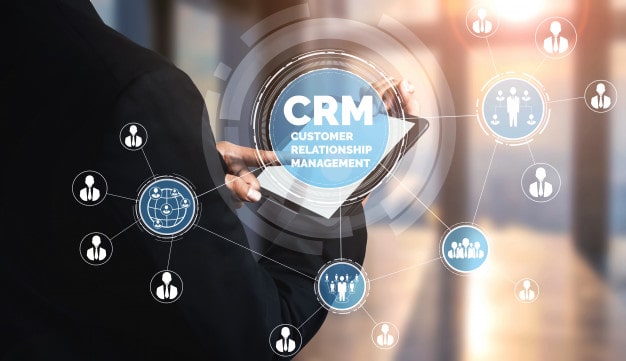There are several steps to develop a custom CRM software application. Companies regularly use customer relationship management (CRM) software solutions to enhance customer relationships, promote sales, and support customer service. With demand at an all-time-high, many business-savvy software developers have decided to design, deploy, and distribute their own custom applications. This way, they can showcase their creativity, maximize earning potential, and challenge themselves with a continuous learning curve. As a software engineer yourself, designing a custom CRM solution also lets you help customer-centric companies improve their overall operations. While developing your own product may sound scary at first, it is actually fairly straightforward to implement with the proper steps, techniques, and strategies. Read on to learn about the steps to develop a custom CRM software application.
Define Your Goals
First off, define your goals to build a custom CRM application from scratch. Every development project begins with a list of strategic goals and objectives. Before you start programming, write down the CRM software engineering goals you are looking to achieve. Also, jot down any challenges, obstacles, or other major issues that you need to solve. Then, you can start formulating specific, direct, and feasible goals. For example, you may want to raise the yearly sales quotes, or lower customer acquisition costs. Ultimately, well-formed goals can help development teams design project specifications quickly and effectively. If your goals aren’t being taken seriously, it will help to establish team credibility. Definitely, define your goals to plan and design a custom CRM software application.
Outline Key Features
Another important step to develop custom CRM applications involves features planning. When choosing the ideal features, your decision needs to be driven by specific design, development, and user experience (UX) goals. This means you should prioritize functionality that suits your end user’s prospective needs. Although some capabilities are common in most CRM solutions, other features will be more unique to your custom-built application. That being said, you’ll want to learn about the most core, basic capabilities of a good CRM product. Some of these include contact management, mobile access, and dashboards reporting. Plus, lead management functions help you track clients and monitor their activity. Surely, outlining key features is crucial to keep in mind when developing CRM custom software applications.
Configure Your Tech Stack
Now, you are ready to configure your tech stack with the latest tools, resources, and technologies. CRM software development requires you to use a wide range of powerful development solutions. For example, you can use a Container registry by JFrog as a single access point to manage, organize, and control all of your Docker images. With this revolutionary functionality, you can stay ahead of Docker hub throttling or data retention issues. After all, JFrog’s advanced tools enable efficient, dependable, and consistent access to remote registries with integration to your build environment. Surely, tech stack configuration is a crucial step to build a custom CRM software application successfully.
Set A Programming Budget
Before you can launch your custom CRM software application, you’ll want to set a programming budget. Estimate the expected costs to design, develop, and deploy your CRM software. You’ll also want to know how much your intended functionalities will cost to fully build out. Since CRM development involves multiple complex phases, costs can vary tremendously. Ultimately, you could end up spending anywhere from $4,000 to $60,000. With these approximate costs in mind, you can start creating budgets for each particular phase in your pipeline. For sure, you need to implement a programming budget to deliver a custom CRM application to small, medium, and enterprise-level businesses.
Begin CRM Software Development
At this point, it is officially time to begin CRM software development and finalize your application. Before you dive right into programming, share the design, model and workflow diagrams with your programming team. They should have already selected the supporting framework design the final product. Once these steps are taken, the team can approve of deadlines and create the project roadmap. Then, start to design your architecture and write code. Afterwards, you need to complete some basic quality assurance testing to assure your product is ready for release. Certainly, one of the most important steps involves actually developing your CRM software for a successful launch.
There are several steps to develop your own custom CRM software application. First, define your goals and identify potential challenges. Next, outline key features your product will contain. Afterwards, configure your tech stack with the latest tools and technologies. Then, you can set a programming budget and calculate the cost for every phase. Now, you should begin software development with strict deadlines and timeframes. Read the points above to learn the steps to develop your own custom CRM software application.










Add Comment